
General IM doc. Teaching doctors to be good teachers. Co-founder @MedEdMentor & @MedEdTagTeam. Tweets my own. #MedEd #MedTwitter #DEI #BLM #HeForShe
How to get URL link on X (Twitter) App


 2/ Whether it is in the team room, or at the bedside, asking questions of learners is a skill that requires intention, preparation, and execution. These best practices were a topic I covered a while back, so this will be a refresher.
2/ Whether it is in the team room, or at the bedside, asking questions of learners is a skill that requires intention, preparation, and execution. These best practices were a topic I covered a while back, so this will be a refresher. 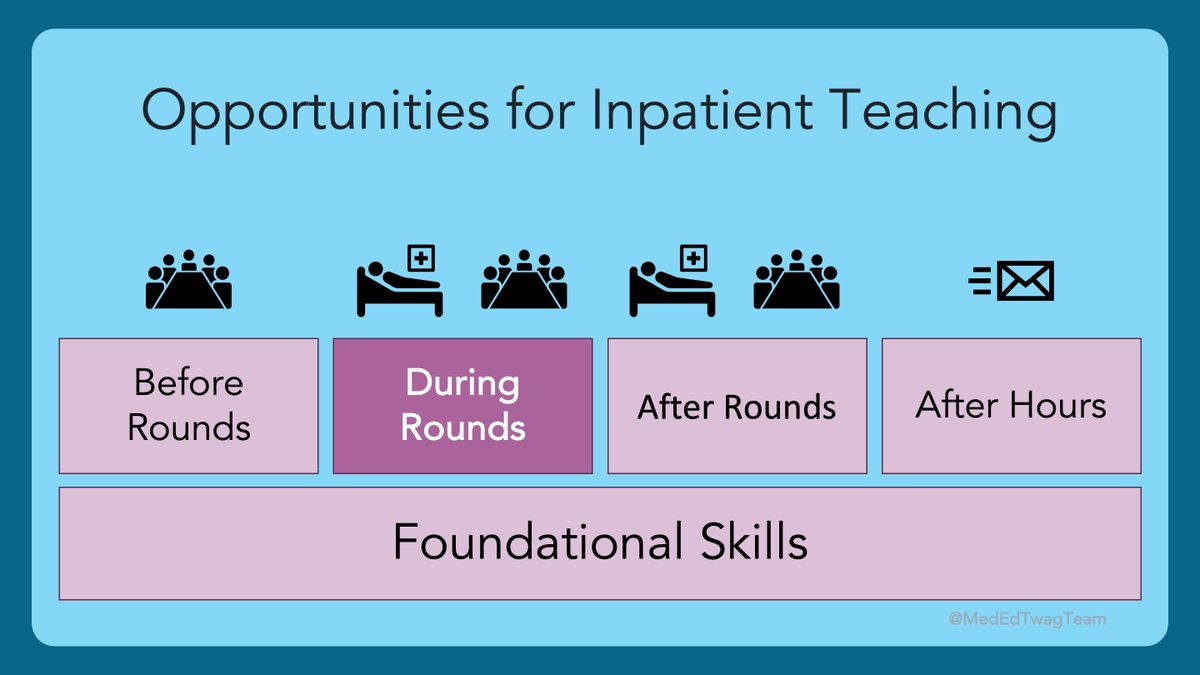

 2/ We are still in this “during rounds” section of our inpatient teaching block. Rounds are the CLASSIC time to drop pearls. But, doing it well takes thought and preparation.
2/ We are still in this “during rounds” section of our inpatient teaching block. Rounds are the CLASSIC time to drop pearls. But, doing it well takes thought and preparation. 

 2/ For refreshers on the WHY and WHAT, check out these previous threads from:
2/ For refreshers on the WHY and WHAT, check out these previous threads from:https://twitter.com/JenniferSpicer4/status/1506358660766867460
https://twitter.com/GStetsonMD/status/1508815468798398478

 2/ As we continue to focus on inpatient teaching, we are still in the section that homes in on opportunities during rounds. Especially when rounds are done at the bedside this is a perfect time to practice communication skills.
2/ As we continue to focus on inpatient teaching, we are still in the section that homes in on opportunities during rounds. Especially when rounds are done at the bedside this is a perfect time to practice communication skills. 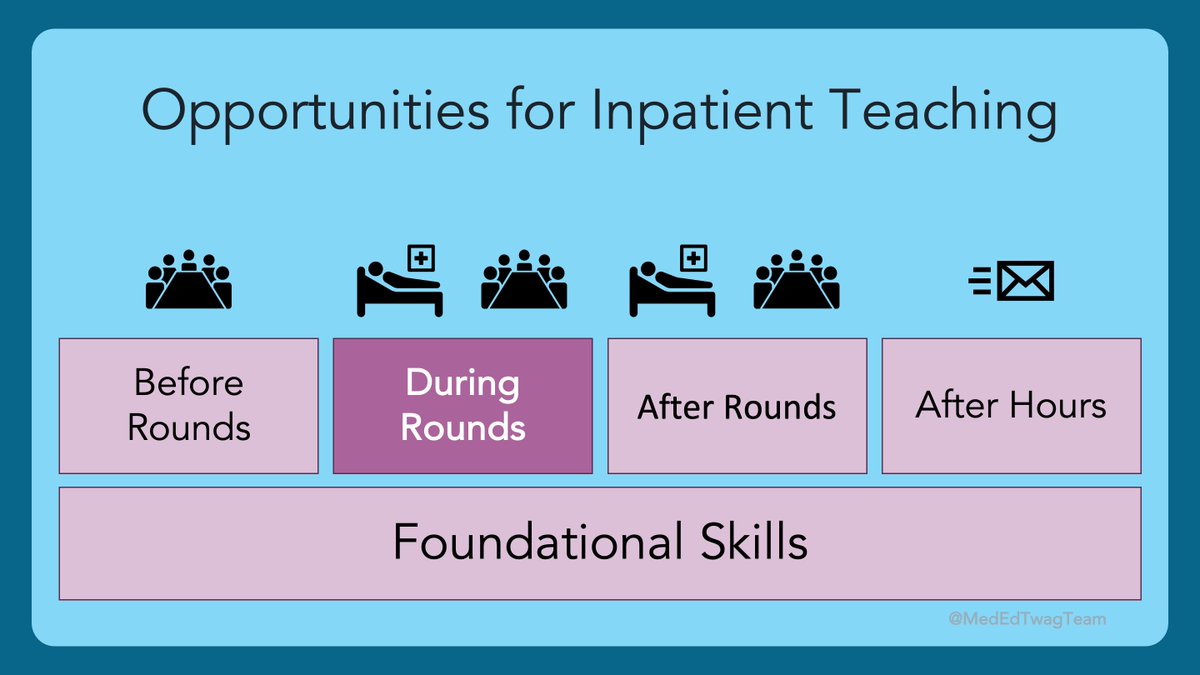

 2/ This week, I will share tips on how to use questions to get ”the wheels turning” for your learners before rounds.
2/ This week, I will share tips on how to use questions to get ”the wheels turning” for your learners before rounds. 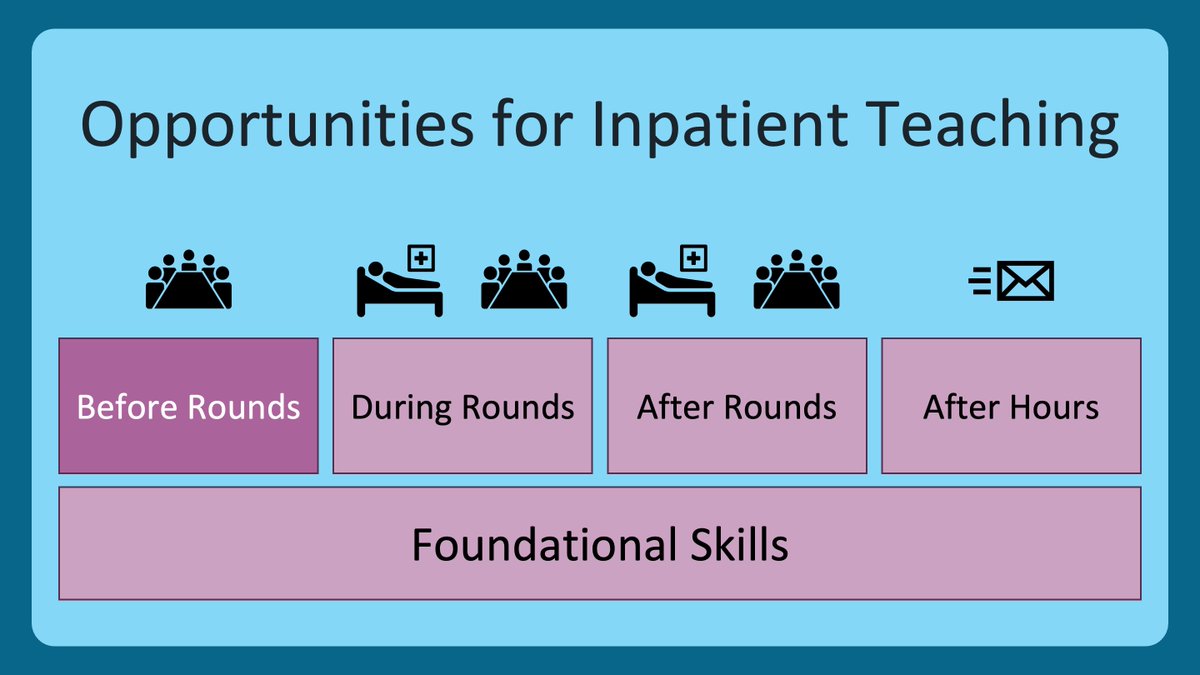

 2/ Welcome back, #MedEd and #MedTwitter friends, for another exciting week of learning from the @MedEdTwagTeam.
2/ Welcome back, #MedEd and #MedTwitter friends, for another exciting week of learning from the @MedEdTwagTeam. 

 2/ As @JenniferSpicer4 outlined two weeks ago, we are going to structure our upcoming content in terms of different times when teaching can occur.
2/ As @JenniferSpicer4 outlined two weeks ago, we are going to structure our upcoming content in terms of different times when teaching can occur. 

 2/ I have had an excellent time sharing with you all my approach to #EffectiveQuestions in the clinical setting.
2/ I have had an excellent time sharing with you all my approach to #EffectiveQuestions in the clinical setting. 

 2/ This is our last specific topic in the #EffectiveQuestions series, and it is a favorite!
2/ This is our last specific topic in the #EffectiveQuestions series, and it is a favorite! 
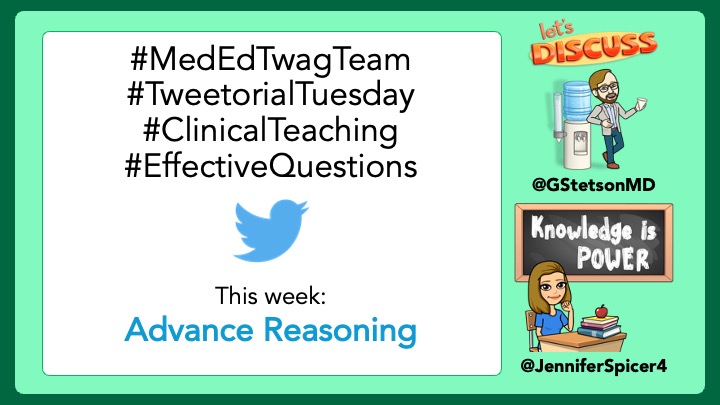
 2/ Today we are touching on how to advance reasoning through inquiry. One of the best and most appropriate uses of questions in the clinical setting.
2/ Today we are touching on how to advance reasoning through inquiry. One of the best and most appropriate uses of questions in the clinical setting. 
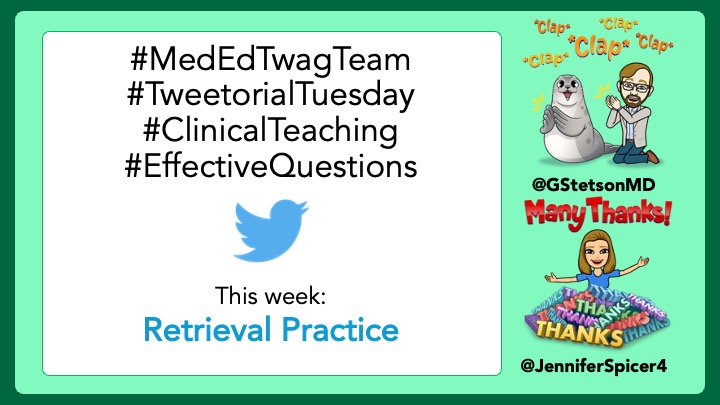
 2/ This week we continue talking about my favorite uses of questions in the clinical learning environment.
2/ This week we continue talking about my favorite uses of questions in the clinical learning environment.

 2/ This week we start talking about my favorite uses of questions in the clinical learning environment.
2/ This week we start talking about my favorite uses of questions in the clinical learning environment.

 2/ Here is where we are in our journey through the world of inquiry as a teaching tool.
2/ Here is where we are in our journey through the world of inquiry as a teaching tool.

 2/ Today is Week 2 out of 7 in this series.
2/ Today is Week 2 out of 7 in this series. 

 2/ I wanted to bring us back to the #HierarchyOfTeachingSkills that we have been using.
2/ I wanted to bring us back to the #HierarchyOfTeachingSkills that we have been using.
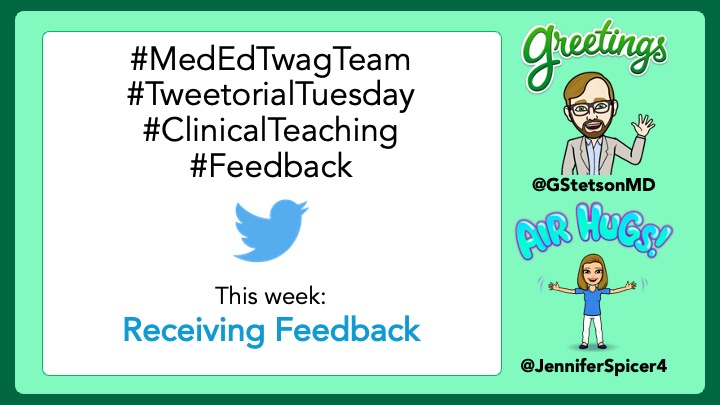
 2/ This is our last thread in our #Feedback series (except for a recap next week), and we have saved the best for last.
2/ This is our last thread in our #Feedback series (except for a recap next week), and we have saved the best for last.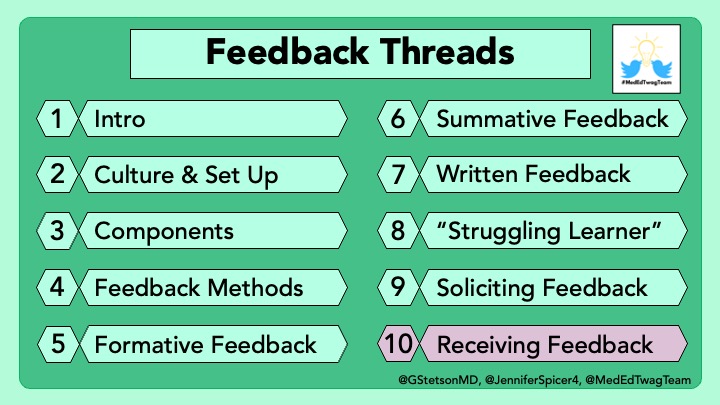

 2/ Today, we will discuss the “struggling learner”, a terrible phrase that shouldn’t be used.
2/ Today, we will discuss the “struggling learner”, a terrible phrase that shouldn’t be used.

 2/ Today we are going to be breaking down #FormativeFeedback.
2/ Today we are going to be breaking down #FormativeFeedback.

 2/ We have reached Week 4 in our #Feedback threads.
2/ We have reached Week 4 in our #Feedback threads.
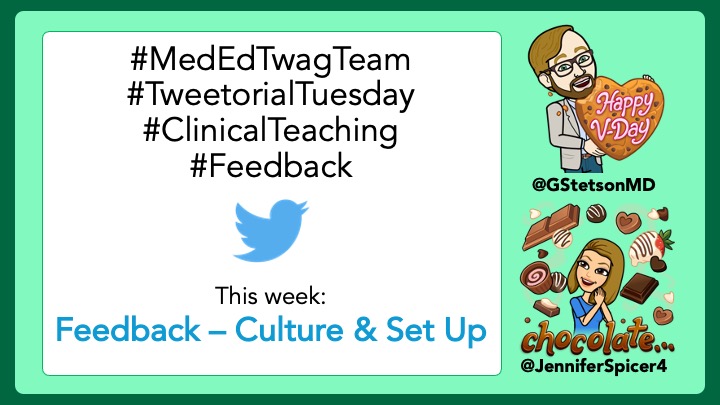
 2/ Here is the 10-week journey we are taking you on to discuss all things #Feedback.
2/ Here is the 10-week journey we are taking you on to discuss all things #Feedback.https://twitter.com/GStetsonMD/status/1303329970526105600
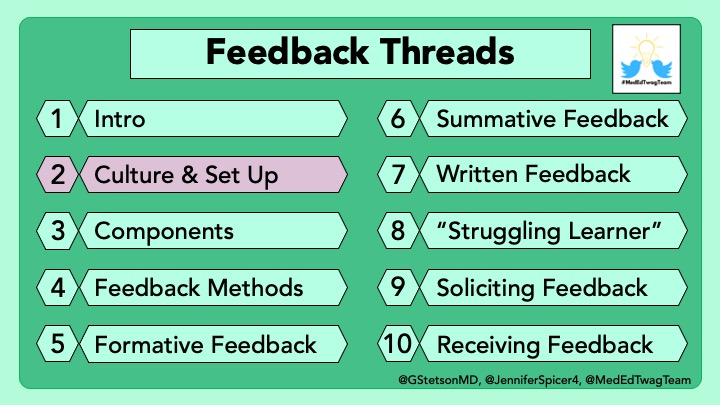

 2/ When we paused, we had just finished the foundation of the #HierarchyOfTeachingSkills.
2/ When we paused, we had just finished the foundation of the #HierarchyOfTeachingSkills.